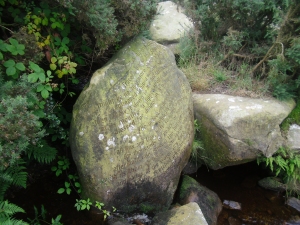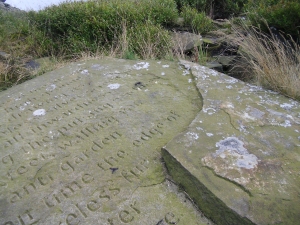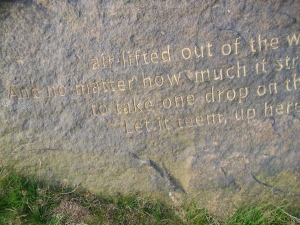In the dawn's early light, in the the biggest snow of the year
Two blue-dark deer stood in the road, alerted.
They had happened into my dimension
The moment I was arriving just there.
They planted their two or three years of secret deerhood
Clear on my snow-screen vision of the abnormal
And hesitated in the all-way disintegration
And stared at me. And so for some lasting seconds
I could think the deer were waiting for me
To remember the password and sign
That the curtain had blown aside for a moment
And there where the trees were no longer trees, nor the road a road
The deer had come for me.
Then they ducked through the hedge, and upright they rode their legs
Away downhill over snow-lonely field
Towards tree dark - finally
Seeming to eddy and glide and fly away up
Into the boil of big flakes.
The snow took them and soon their nearby hoofprints as well.
Revising its dawn inspiration
Back to the ordinary.

This poem is from the collection ‘Moortown Diary’, also in Hughes’ ‘New Selected Poems’, written 1973.
This poem seems to introduce the idea of two converging worlds: that of nature and humans. The fact that the narrator (seemingly Hughes himself) is normally in a separate ‘dimension’ from the pair of deer suggests how alien they are to him, despite his being brought up around nature and with a love for it. The majesty of the deer is further conveyed, but also how, even during this collision between man and nature, they are far from his grasp in this fleeting moment. They are merely ‘blue-dark’ shapes, seen only in the ‘dawn’s early light’; this is a rare occurrence for the narrator, and such a brief sighting as this becomes almost momentous. Continue reading →







